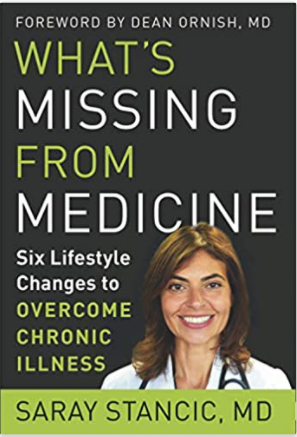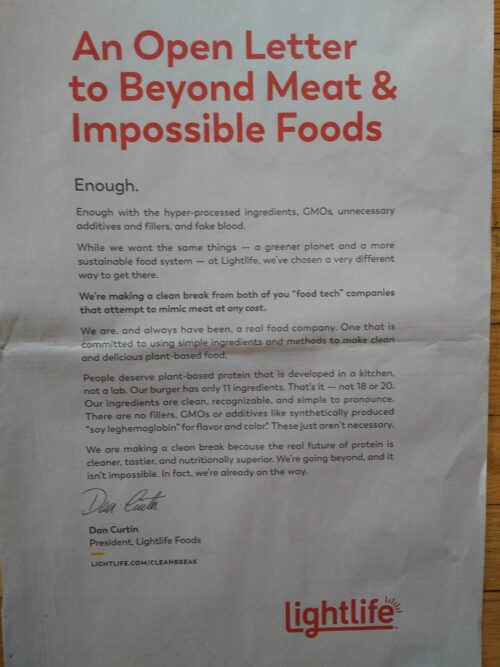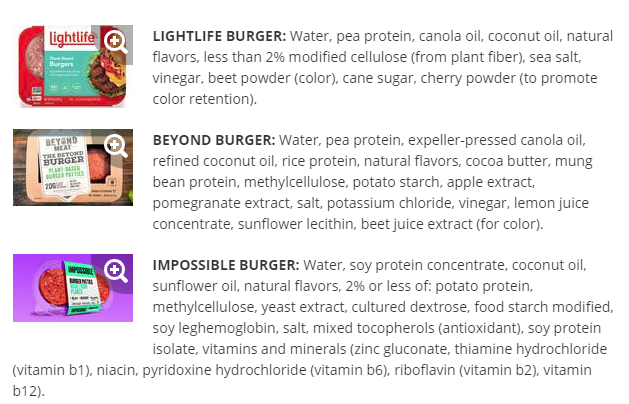Keeping up with plant-based meat alternatives
I’ve been trying to keep up with the news on plant-based meat alternatives. This isn’t easy. There’s a lot going on.
Plant-based meat politics
- PepsiCo (!) and Beyond Meat have established The PLANeT Partnership to bring new plant-based protein offerings to market. Big Soda marries Big Plant-Based?
- Lawsuit challenges FDA approval of additive that makes Impossible Burger ‘bleed’: The Center for Food Safety is challenging the FDA’s approval of a color additive used to make Impossible Foods’ plant-based burger appear to “bleed” like real meat. The advocacy group claims that the FDA’s decision was not based on “convincing evidence” as required by regulation. Continue Reading
Plant-based science news
- Plant Protein Meal Patterns May Compromise Bone Health
- Food Technology and Plant-Based Diets
- Plant-Based Meat and Dairy Substitutes as Appropriate Alternatives to Animal-Based Products?
Plant-based business news
- Coldplay bassist launches plant-based protein range: A new range of plant-based protein products has been launched by Coldplay bassist Guy Berryman. Read more
- Europe’s largest plant-based factory to open in UK: Plant-based food manufacturer Plant & Bean is to open Europe’s largest plant-based food factory in Boston, Lincolnshire and has revealed strategic partners including Griffith Foods and soy processor Gushen alongside this news. Read more
- Unilever unveils mission to make plant-based eating ‘the new normal’ Unilever is targeting annual sales of €1bn ($1.19bn) from plant-based meat and dairy alternatives within five to seven years as part of a broader plan to make plant-based options more accessible, affordable and appetizing, effectively becoming “the new normal.”… Read more
- Nestlé is launching a plant-based tuna product in Switzerland and eventually worldwide, called Sensational Vuna. The food maker’s first vegan seafood offering, Vuna is made from pea protein and packaged in a glass jar. Reuters reports.
- How the poultry industry can win against meat alternatives: The poultry industry is searching for innovative ways to tempt consumers away from plant-based meat alternatives or tissue cultured raised meat.
- Pea Protein: Sowing the seeds for plant-based perfection: The alternative protein market is continuing to grow exponentially across the globe, thanks to the rising popularity of flexitarian diets and trends like Veganuary… Read more
- McDonald’s launched McPlant today
- Beyond Meat launched two new versions of its Beyond Burgers
Comment
This is a big industry with many questions about quality, degree of processing, and effects on the environment still to be settled. And these are just the plant-based products. Next week, I’ll post a collection of articles on the cell-based meat alternatives. These are not yet on the market (except in Singapore) but also look like big business. Stay tuned.





